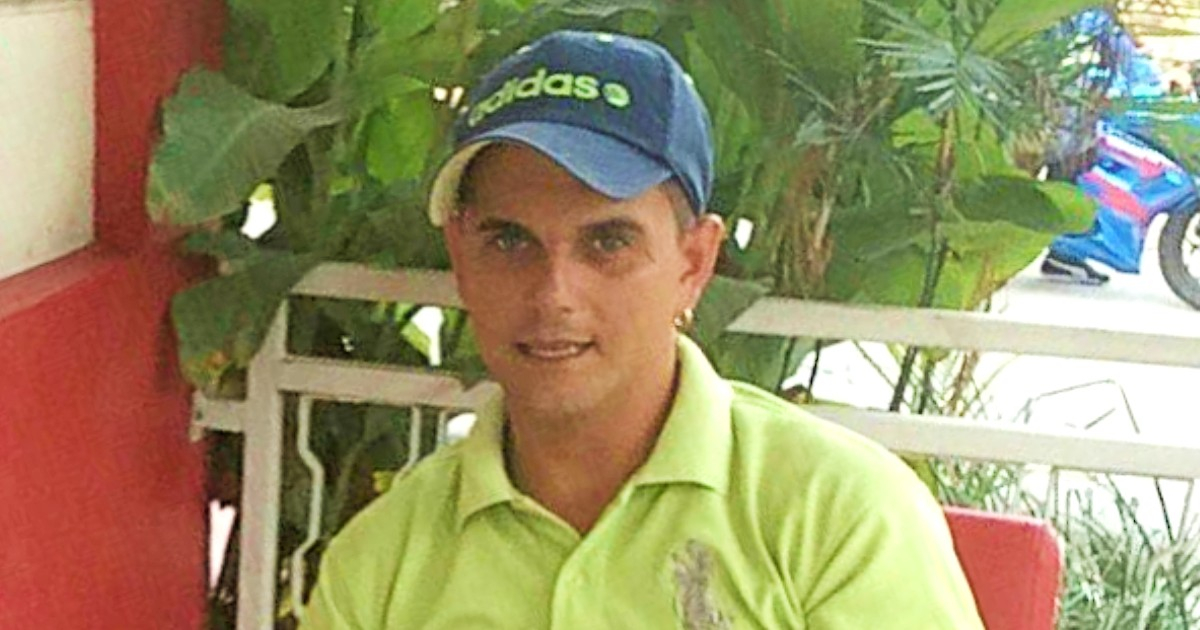
The Cuban journalist and activist for freedom of expression,Yerly Luis Velázquez, was threatened this Tuesday by repressors of the Cuban dictatorship with sanctions for his expressions on social networks in application of theDecree Law 370, known asGag Law.
“The interrogation is over, I'm fine. More of the same, threats for thinking differently, and for expressing myself on social networks. They also told me that if I continued they would apply Decree Law 370 to me. #CubaEsUnaDictadura #LibertadDeExpresion,” the journalist indicated on his social networks.
At the end of March, Velázquez posted a message on Twitter calling for the release ofLuis Robles Elizástigui. Sharing an image in which on one side you could see the photo ofFidel Castro taken by the Batista police after the assault on the Moncada barracks, and on the other that of Robles in the street demanding freedom and asking for an end to the repression, Velázquez compared the punishment received in both cases.
“The first attacked a barracks with shots, the second took out a poster. Same sentence: 5 years. The difference between Republic and Dictatorship. #SOSCuba,” said Velázquez in a post that was retweeted by almost 500 users and that the journalist posted on his Twitter account.
Days later, the Cuban boxerYordenis Ugás challenged the rulerMiguel Diaz-Canel to free the political prisoners on the island. In his message, published on said social network,Ugás spread the journalist's post, which - taking into account the regime's animosity towards the Patria y Vida boxer - could have influenced the harassment of State Security against Velázquez.
In an article published at the end of February inCrucial Minute, the journalist analyzed the current Cuban immigration crisis in the context of the successive exoduses that have marked Cuban society since January 1959.
“Currently we are seeing another 'new stampede' of Cubans seeking new horizons. This time in collusion with the Nicaraguan regime, one of the main allies along with Venezuela, Russia and Mexico,” noted the young independent journalist.
According to Velázquez, “one of the main motivations of emigrants is the lack of individual freedoms and the excessive control of the state over its citizens.” Economic precariousness, scarcity, shortages, low salaries and lack of opportunities for youth would be the causes of the current exodus of Cubans.
“The most valuable thing about our Cuban homeland 'escapes' us in each exile. With this, the island 'bleeds' as it sees its most illustrious sons leave. In some cases never to return. families divided, marriages dissolved, children who do not know their parents in person. The largest archipelago in the Caribbean Sea, kidnapped by a family in power for 6 decades, brought a lot of material, moral and spiritual damage to the nation,” the young man reflected then.
His opinions, protected by freedom of expression, as well as his publications on social networks ended up attracting the attention of the repressive bodies of the Cuban regime.
“They just brought me this summons for tomorrow; a 'safe' at the door of my house. The harassment and bullying of all of us who think differently in #Cuba continues,” the journalist said on May 9, sharing an image of the document in which State Security summons him for an “interview.”
Decree Law 370, known as the Azote Law, provides sanctions for Cubans who publish information that is uncomfortable for the regime on social networks. Last February, the memero known on Twitter asThe Russian was fined 3,000 pesos after publishing the photo of a poster that appeared in Havana with the sign “Down with Canel singao.”
The DL-370 began to be applied in January 2020 and as of November 2021 at least 40 Cubans had been fined for their publications on social networks, according to information collected by the Data journalism project Inventario. The CiberCuba reporter, Iliana Hernández, was the first person sanctioned with DL-370 on January 13, 2020.
What do you think?
COMMENTFiled in: